Chesapeake Bay News
Oct
07
2014
Restoration Spotlight: Maryland horse farmers steward the land
Nestled next to Patuxent River State Park in Laytonsville, Maryland, are the 220 rolling, vegetation-rich acres of Waredaca horse farm. Husband and wife Robert and Gretchen Butts are the second generation to manage the family farm since Robert’s parents purchased the property in 1953. To them, Waredaca is more than just a business: it is their home.
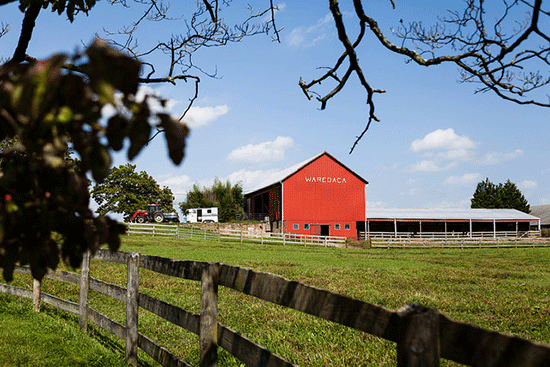
The farm has evolved from a summer camp to a boarding stable for more than 80 horses, 30 of which are directly owned by Waredaca; recreational and competitive riders board the rest. The farm continues to host a youth summer camp, hold eventing competitions and offer year-round riding lessons. “To be able to make a living doing things you love—and to do it at home—is the best. This place is my life, and that’s pretty special,” Robert said.
The Butts’ connection to their land has sparked a deep sense of environmental stewardship within their family. “We’ve been here our whole lives, and plan on being here a long time. I think for a large portion of the agricultural community, that’s the case. Many have been motivated conservationists for years,” Robert explained.
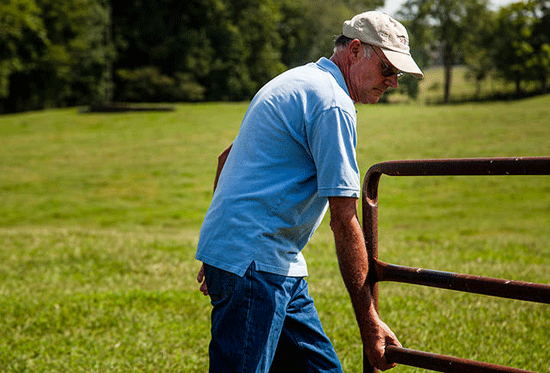
A prominent part of Maryland’s environmental efforts to conserve farmland has included the equine community. “In recent years, certainly the state and Montgomery County have clarified in legislation that horses are a part of agriculture and therefore the services and outreach pertain to them,” said Robert. “Outreach to the equine community has been particularly important to [increasing] participation [in restoration initiatives].”
The Maryland Horse Council has been a strong partner with the state’s Farm Stewardship Certification and Assessment Program (FSCAP), which certifies agricultural stewards throughout the state. Since its development in 2010, FSCAP, administered by the Maryland Association of Soil Conservation Districts (MASCD), has conducted 131 reviews on 108 farms and certified 91 agricultural conservation stewards protecting 27,000 acres in 16 counties. The Maryland Horse Council has helped FSCAP certify 20 horse farms.
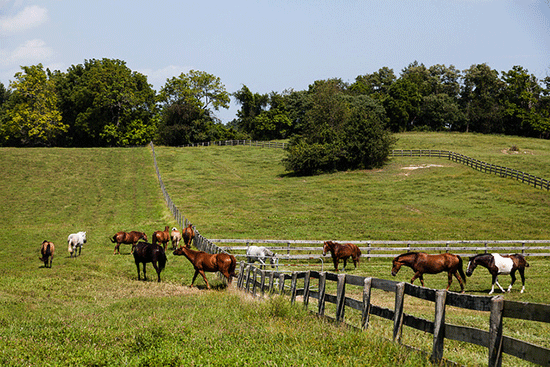
According to the state, any farm with more than eight “animal units”—normally defined as one mature cow weighing about 1,000 pounds and her suckling calf—is required to follow a nutrient management plan to ensure that excess manure is properly disposed of. Assessors from FSCAP are trained by theMaryland Department of Agriculture to review nutrient management plans with the same attention to detail provided by official inspectors. Assessors also inspect other “best management practices” (BMPs), which reduce pollution and improve habitat on farmland. When certified, each steward gets his or her own webpage on the FSCAP website and the landowner receives a large sign to place on their property, advertising their environmental stewardship.
“The program was created in order to provide some positive recognition for farmers that are doing a great job [caring for the land], in light of what seems like fairly constant criticism about agriculture’s role in polluting the Chesapeake Bay,” said FSCAP Project Leader Gerald Talbert. “We carefully gathered core partners for this program because we wanted both the agricultural and the environmental communities to be involved.”
"Many stewards feel that certification means more than just personal recognition; it’s also good for business,especially with farms that deal directly with the public” Talbert said. “ So far, we’ve provided 91 signs, but there are 133 signs displayed.
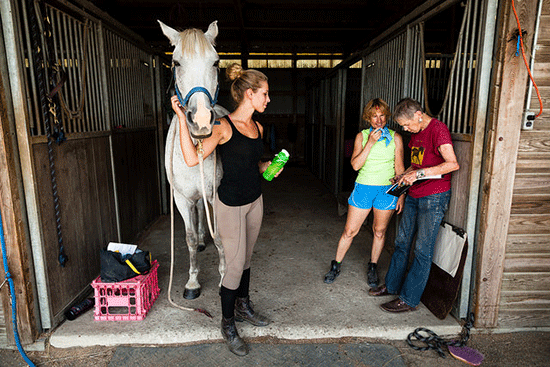
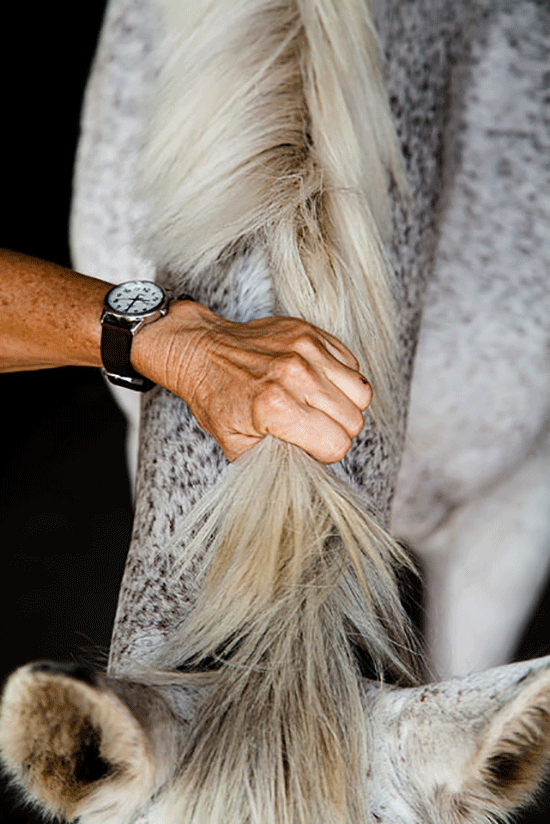
By working together, Robert and Gerald were able to identify and address a streamside fencing issue that thwarted Waredaca’s certification efforts. The problem has since been fixed and the farm has been certified.
The Butts follow a nutrient management plan, composting their manure and spreading it on their fields to encourage rich soil and healthy pastures. They have also put a number of BMPs in place: a manure storage facility, a spring-fed water tank and stream-side buffers with fencing to keep horses out of streams, thereby keeping the surrounding creeks and streams clean.
The Butts also practice rotational grazing. Strategically moving livestock to fresh pastures can allow previously grazed fields to regenerate, and is a preferred practice for fighting overgrazing. But many farmers do not have the space to rotate their grazing pastures, leading to field erosion and thesedimentation of rivers, streams and the Bay.
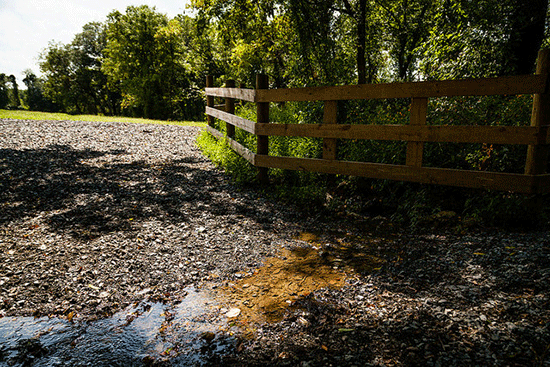
“We are very blessed to have a lot of room where the horses can roam,” Robert said. “Lack of space can be a limiting factor for many [horse-owners]. Overgrazing is a very common thing in the horse business, and will be hard to eliminate completely because of the way horses eat. Cows don’t eat the grass all the way down to the ground, but horses do,” he explained.
Through the efforts of programs like FSCAP and the willingness of farmers like the Butts to sign on to voluntary conservation programs, stewardship certification programs are gaining traction among the agricultural community. “Part of the effort here is not just to recognize those folks that have already done a great job, but to also provide incentive for someone to step up and put those one or two BMPs in place that they may have been missing to meet the standard,” said Talbert.
To view more photos, visit the Chesapeake Bay Program's Flickr page.
